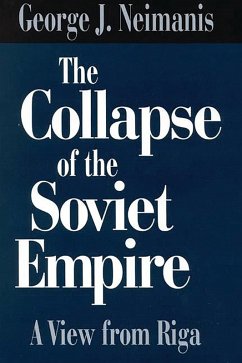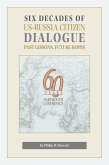An American academic describes the breakup of the Soviet Union and the formation of an independent Latvia from the vantage point of Riga, where he was acting as an advisor to the Latvian Parliament and was a visiting faculty member at the time of the events. This description is unusual for several reasons-the author was based in Riga rather than Moscow or Leningrad, where most reporters lived, the work was written by someone who had access to the government, and the author was able to understand the local press and people. Background material on the Baltic countries and their relationship to the USSR is discussed.
By 1991, the Soviet system was floundering, with people spending an inordinate amount of time standing in lines to cope with shortages. The final breakdown of the Soviet empire began in the Baltic Republics, where Baltic nationalism and Russian nationalism clashed. By the end of 1991, the Baltic countries and most of the former Soviet republics had declared independence. The Soviet Union has bequeathed to the successor states an infrastructure and ethos that makes the transition to democracy and a free market extremely difficult. The work will interest those who want to learn what really happened during the breakdown of the USSR and those who need to deal with the changes that continue to occur in the successor states.
By 1991, the Soviet system was floundering, with people spending an inordinate amount of time standing in lines to cope with shortages. The final breakdown of the Soviet empire began in the Baltic Republics, where Baltic nationalism and Russian nationalism clashed. By the end of 1991, the Baltic countries and most of the former Soviet republics had declared independence. The Soviet Union has bequeathed to the successor states an infrastructure and ethos that makes the transition to democracy and a free market extremely difficult. The work will interest those who want to learn what really happened during the breakdown of the USSR and those who need to deal with the changes that continue to occur in the successor states.









